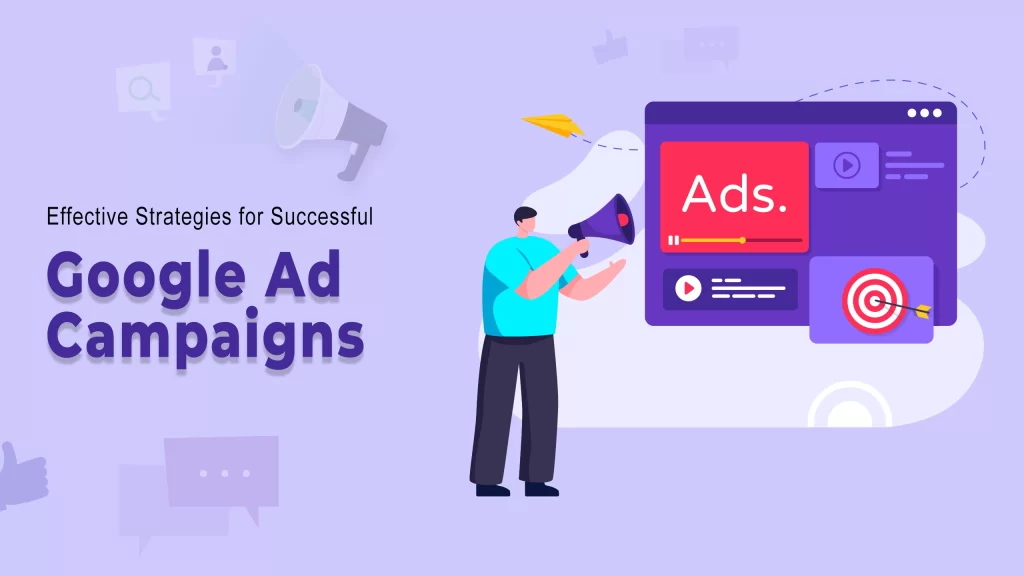In the ever-evolving landscape of digital marketing, Google Ads (formerly known as Google AdWords) stands as a powerful tool that can significantly impact your business’s online presence and bottom line. With the right strategies and techniques, Google Ad campaigns can drive targeted traffic, boost brand visibility, and lead to higher conversions. Here are some tried-and-true Google Ad campaign tips that can genuinely work wonders for your business:
1. Define Clear Objectives
Before diving into creating your Google Ad campaign, it’s essential to establish clear and measurable objectives. Determine what you want to achieve with your campaign – whether it’s generating website traffic, increasing sales, boosting brand awareness, or something else entirely. Defining specific goals will help you tailor your campaign structure, keywords, ad copy, and targeting to align with your business objectives.
2. Thorough Keyword Research
Effective keyword research forms the foundation of a successful Google Ad campaign. Utilize keyword research tools, such as Google’s Keyword Planner, to identify relevant and high-performing keywords related to your products or services. Focus on a mix of short-tail and long-tail keywords to capture a wider range of search intent and reach potential customers at different stages of the buying journey.
3. Compelling Ad Copy
Crafting compelling and relevant ad copy is crucial for capturing users’ attention and encouraging clicks. Highlight the unique selling points of your products or services, use clear and concise language, and include a strong call-to-action (CTA) that entices users to take the desired action, whether it’s making a purchase, signing up, or requesting more information.
4. A/B Testing
Testing is a cornerstone of successful Google Ad campaigns. Create multiple variations of your ad copy, headlines, CTAs, and even landing pages to identify which elements resonate best with your target audience. A/B testing allows you to fine-tune your campaigns based on real data, leading to improved click-through rates (CTR) and conversion rates over time.
5. Landing Page Optimization
Sending users to a relevant and optimized landing page is just as important as creating compelling ads. Ensure that your landing page provides a seamless and cohesive experience from ad click to conversion. Optimize the landing page for speed, mobile responsiveness, and user-friendliness. Match the content on the landing page to the ad’s promise to maintain consistency and boost trust.
6. Utilize Ad Extensions
Google Ad extensions offer additional space to showcase relevant information, such as site links, phone numbers, reviews, and more, directly in your ads. These extensions not only enhance the visibility of your ads but also provide users with more reasons to engage with your business. Experiment with different ad extensions to see which ones resonate best with your audience.
7. Geo-Targeting and Audience Segmentation
Google Ads provides robust options for targeting specific geographic locations and demographics. Take advantage of these features to tailor your ads to your target audience’s preferences and behaviors. By segmenting your audience effectively, you can deliver personalized messages that are more likely to resonate and drive conversions.
8. Monitor and Adjust Regularly
A “set it and forget it” approach won’t yield the best results in the dynamic world of digital advertising. Regularly monitor your Google Ad campaigns’ performance, analyze key metrics such as CTR, conversion rate, and return on ad spend (ROAS), and make necessary adjustments. Pause underperforming ads, reallocate budgets, and refine targeting based on the insights gained from ongoing monitoring.
9. Budget Allocation
Allocate your budget strategically across campaigns and keywords based on their performance and potential. Focus more resources on high-performing keywords and campaigns, while also allowing room for experimentation with new strategies. Continuously adjust your budget allocation to optimize for the best possible results.
10. Stay Updated
The digital marketing landscape, including Google Ads, is continually evolving. Stay informed about the latest updates, features, and best practices through industry blogs, webinars, and official Google resources. Adapting your strategies to accommodate new trends and changes can give you a competitive edge and keep your campaigns relevant.
Conclusion
In conclusion, a well-executed Google Ad campaign can be a game-changer for your business’s online success. By defining clear objectives, conducting thorough research, crafting compelling ad copy, optimizing landing pages, and staying vigilant in monitoring and adjusting, you can create impactful campaigns that drive targeted traffic, increase conversions, and contribute to your business growth. Remember, the key is to continuously learn, adapt, and refine your strategies to stay ahead in the digital marketing arena.










